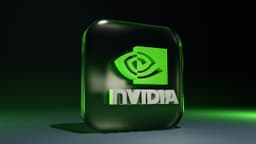AlphaGo: A Breakthrough in Artificial Intelligence
AlphaGo is a program that uses deep neural networks and tree search techniques to play the board game Go. Developed by DeepMind, AlphaGo made headlines when it defeated world champion Go player Lee Sedol in a five-game match. This victory marked a significant achievement in AI, as Go is considered a complex game with an enormous number of possible moves.
To appreciate AlphaGo's achievement, it is important to understand the intricacies of Go. The game has simple rules, allowing players to place black and white stones on a 19x19 grid. The objective is to surround and capture the opponent's stones. Unlike chess, Go features a vast number of possible moves, posing challenges for traditional AI techniques.
The Power of Deep Neural Networks
What makes AlphaGo powerful? It utilizes deep neural networks, a type of artificial neural network with multiple layers of interconnected nodes. These networks learn complex patterns, enabling intelligent decision-making based on input data.
AlphaGo's deep neural networks were trained using a combination of supervised learning and reinforcement learning. Initially, the network learned from a large dataset of expert Go moves. It then refined its skills by playing millions of games against itself, enhancing its performance.
Monte Carlo Tree Search
While deep neural networks form the foundation of AlphaGo's decision-making, they alone are not enough to play at a world-class level. AlphaGo employs Monte Carlo Tree Search (MCTS) to navigate the vast search space of possible moves. MCTS is a heuristic search algorithm that simulates random game plays to build a search tree and evaluate different moves.
Each turn, AlphaGo uses MCTS to explore move sequences and assess their potential outcomes. This enables the program to identify the most promising moves and choose the one likely to succeed. The combination of deep neural networks and MCTS allows AlphaGo to make strategic decisions that rival human players.
Impact on the World of AI
What was the significance of AlphaGo's victory? It marked a turning point in AI, showcasing that AI systems could excel in areas previously thought to be exclusive to humans. This success has prompted researchers to explore new AI applications beyond traditional problem-solving tasks.
For instance, AlphaGo's techniques have been applied in healthcare. DeepMind has partnered with healthcare providers to develop AI systems that can diagnose diseases and predict patient outcomes. These systems leverage deep neural networks and reinforcement learning to analyze medical data and provide insights to professionals.
Another domain influenced by AlphaGo is autonomous vehicles. The complex decision-making required for autonomous driving shares similarities with strategic thinking in Go. Researchers are investigating ways to adapt AlphaGo's techniques for training AI systems in traffic navigation, split-second decisions, and ensuring passenger safety.
Breakthrough in Strategic Gaming and Beyond
AlphaGo's achievements have reshaped the landscape of AI. By merging deep neural networks and Monte Carlo Tree Search, AlphaGo has revealed the vast potential of AI in strategic gaming and other fields. Its victory over Lee Sedol is a significant milestone in AI history and has inspired continued exploration of AI's capabilities.












